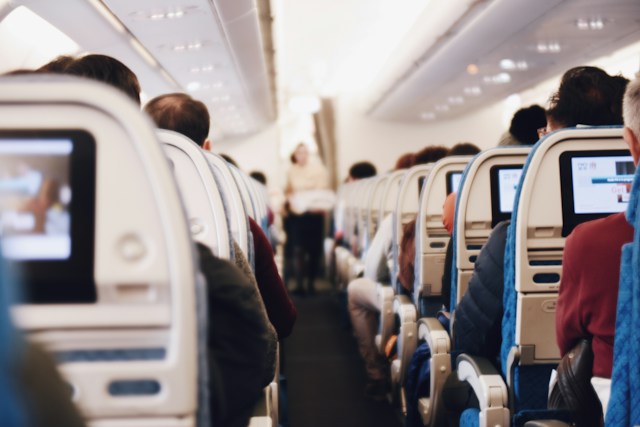Traveling has advantages beyond creating new experiences and networking with people. Venturing beyond your comfort zone and discovering a new location might yield a remarkably favorable effect on your mental health.
Changing up your weekly schedule to spend a weekend day in a neighboring town or location can help shift your perspective and reduce the stress of the daily grind, even in these uncertain times when traveling long distances might feel overwhelming.
These are seven benefits of travel for mental health.
- It can support your continued health and fitness
Exercise has been shown to enhance mental health, and traveling provides many opportunities to engage in physical activity. Whether you prefer swimming in the sea, hitting the trails, or scaling mountains, getting to know a new place by embracing the great outdoors can elevate your spirits and give you more energy.
Another effective strategy to lessen the symptoms of stress, anxiety, and depression is to spend time in and around nature. While you can do this anywhere, even in cities, it makes sense to add a little ecotherapy to your trips as well.
- It disturbs the established order.
Traveling away from home, whether for a short vacation across town or abroad, can help you break negative cycles, get out of a rut, and discover a world of opportunities that lie beyond your bubble.
David Owen, YA author and former travel editor, says that when he is depressed, “getting out of the house and out of negative routines (for me, wallowing on the couch and eating junk food) can help to clear my head and give me the space to properly consider the things my brain is telling me.” Traveling to a location entirely different from my typical surroundings, whether it be overseas or nearby, can be a useful strategy for achieving both physical and symbolic separation. I have interesting things to go look at and do as a diversion, if nothing else!
When people are depressed, “Getting out of the house and out of the negative routine (for me, rolling on the couch, eating junk food) can help clear my head and give me space to think properly about what my brain is telling me.” Traveling to a place that is completely different from my typical environment, both overseas and nearby, it is a useful strategy for achieving a physical and symbolic separation. I have something interesting to see, and if nothing else, it can be a diversion!
- It offers you an alternative viewpoint.
You can become open-minded to new lifestyle options by traveling to diverse cultures. Your well-being can be significantly impacted by even seemingly insignificant changes, like picking up a new skill or altering how you use your free time. Traveling may cause you to reflect on and confront the conventions of your daily existence at home, which may motivate you to make constructive adjustments.
For instance, I like to remember my experiences riding in tuk-tuks in Sri Lanka whenever I feel my own stress levels rising. Our driver and other drivers were unfazed by the situation as we passed busses on blind bends, avoided wishing-death pedestrians, and got clipped by innumerable motorbikes. Everyone was composed in spite of the turmoil. My personal concerns and confusion vanished after a few of these trips when I saw that the other options—fear or road rage—serve no one. I make an effort to live by this lesson at home: you have no control over what other people do; you can only control how you react to them.
- It fosters greater inventiveness
Scientific research has demonstrated that novel encounters, especially those that let you fully immerse yourself in a foreign culture, enhance brain neuroplasticity and foster more creativity. Following a period of agoraphobia brought on by grief, Erica Buist authored a book and crossed the globe to participate in seven festivals honoring the deceased.
“In Madagascar, I was struck in the head by a corpse (which was carried by its dancing descendants), participated in a parade in Nepal, assisted in constructing an altar for the deceased in Mexico, and learned enough Japanese to get by in Kyoto,” she recalls. Although I occasionally have the feeling that I don’t want to leave the house, it’s difficult to doubt my capacity to go to the stores in light of everything I’ve been through. Even beautiful travel can be stressful, so when things go wrong, it’s almost as if the travel I’ve already done serves as a baseline I can return to.
- It reduces stress
Sometimes all your body and mind need is a rest – and where better to chill out than on a beach lounger somewhere warm? Sunshine is an excellent way to relieve stress because it increases the release of serotonin, the “happy hormone,” in the brain and provides a dosage of vitamin D, which is known to improve mood. Your mental health can benefit greatly from escaping the daily grind and stress of work in favor of afternoon naps, leisurely walks, and schedule freedom. The feel-good element can be increased by traveling with friends and family, but traveling alone can reinvigorate your sense of freedom.
- It increases confidence and self-worth
It’s not all spa days and swaying palms when traveling. It may also entail negotiating crowded places in sweltering heat, getting lost, overcoming linguistic obstacles, or experiencing culture shock—all of which are particularly difficult if you’re prone to depression or anxiety.
Traveling has turned into an unusual kind of anxiety treatment for us. Travel helps us put the tiny things in life, which can sometimes feel overwhelming when we suffer from anxiety, in perspective by keeping our worlds “big.” For instance, finishing a quick train trip seems very doable after experiencing the rush of getting off a plane and traveling to the other side of the globe. Our lives remain full and open when we travel, and this promotes improved mental health.
- It’s a self-care gesture
It’s simple to feel guilty or undeserving of good things when you’re depressed. However, taking a journey, whether it’s a local vacation or a far-off travel, may be a powerful kind of self-care.
Naturally, anxiety and depression can make travel challenging. Anxiety makes me worry about doing everything, and sadness both saps my energy to organize it and tells me I’m not worth the effort,’ says David. “To help you get through that and give yourself some love or purpose, planning a trip can be a good idea.”
Traveling itself offers you the opportunity to do what you love, take breaks, and learn to live in the now, in addition to the focus and enthusiasm that come with arranging a trip. As a result, travel is not only a fun hobby for many people but also a crucial component in developing a good, healthy outlook.





Yes, traveling makes people healthier. I really enjoy traveling, and you?
The travel style in the article is very suitable for me.
Thank you for the author’s courage and sharing.